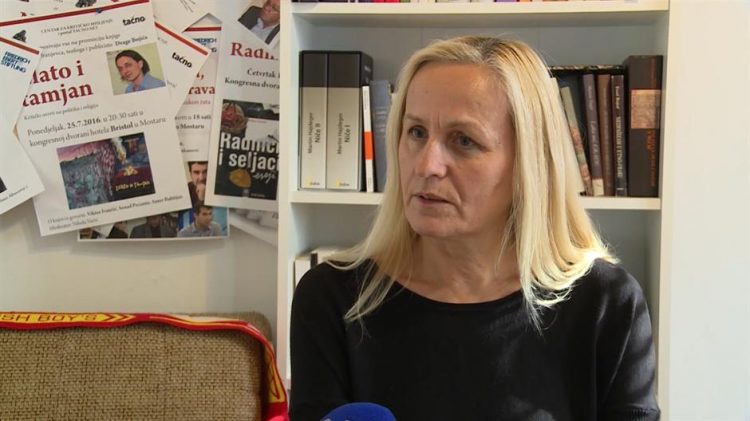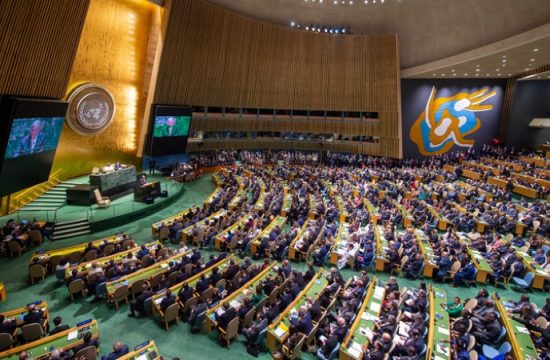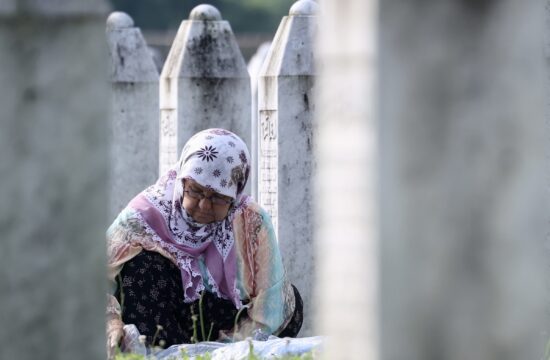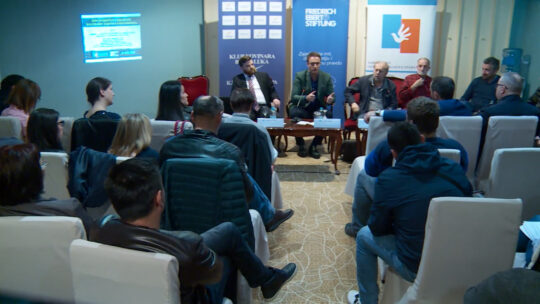
After being honoured with the 2018 Johann Philipp Palm Freedom of Speech Award beginning of December, the editor of a local news portal, Stefica Galic, told Radio Free Europe that it was comforting to receive such an award after decades of humiliation, isolation and condemnation because of her work.
“After so much misery I have seen here, for someone to award you and recognise your work, I find it unbelievable,” she told Radio Free Europe, emphasising that it is important to her that the award was handed to her from Germany, as that is the country which the area she comes from looks up to.
“It means a lot to me because it is handed out for freedom of speech and media, the job that I do,” she said.
Stefica Galic is a Bosnian Croat and together with her late husband, Nedeljko Galic, she stood up for her Bosniak neighbours when members of her own ethnic group wanted to send them to detention camps during the 1992-1995 war.
She became a journalist after the war and wrote about what she saw and experienced. This is why she was stigmatised by members of her ethnic group.
The award “confirmed that what I am doing is right,” she said.
Stefica and Nedeljko Galic lived in the southwestern town of Ljubuski when the war between Bosniaks and Croats broke out in the country. Bosniaks in her community were rounded up in 1993 by Croat militia, and the plan was for them to be sent to detention camps.
But the couple faked affidavits for those in the camps proving that they could be sent to other places outside of the country instead of being kept in the camps. It is believed that the couple saved some 1,000 people this way, or a third of the Bosniaks living in the area.
Nedeljko Galic was posthumously honoured with the Dusko Kondor Award for civil courage.
Stefica Galic began writing about what she saw, and was met with verbal and physical attacks for her work.
“After all of the misery we experienced from the 1990s to 2001, after our neighbours isolated us, after the countless attacks on us, we were left completely broke and humiliated so much that Nedjo (Nedeljko) fell ill and died in 2001,” she said.
Those who committed the atrocities Galic wrote about know well that what she wrote is true, but never wanted to admit it, she said.
When Nedeljko was awarded and Stefica began writing, “everyone jumped up against it, from Croatia to the Western-Herzegovina veterans and associations,” she said.
“They persistently claimed that it did not happen. When I am told ‘it did not happen’ for something that I have seen with my own eyes, all of which happened in front of my house which is next to the police station, I realised how far they would go,” she said.
There is nothing Galic was not threatened with, she said, mentioning threats she received from former Bosnian Croat generals.
“All of them would also tell me in person ‘yes, it was like that, it was even worse, but you cannot speak about it, you are one of us,’ so you should hide the crimes and perceive them as a collective thing,” Galic said.
“I don’t want to do that,” she declared.
“I am absolutely opposed to any kind of fascism, to detention camps and everything that is inhumane. There is nothing they could threaten me with to scare me,” she said.
“Such an idea, in which I protect all that is humane and people, is worth the trouble I am going through,” she concluded.




